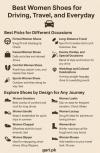IMF Tariff Reductions Potential Drop in Car Prices

IMF Tariff Reductions Potential Drop in Car Prices
Pakistan's automobile market has been grappling with soaring car prices, making vehicle ownership increasingly difficult for consumers. However, a recent understanding between the Pakistani government and the International Monetary Fund (IMF) to slash import tariffs could bring significant relief. This policy shift aims to boost market competition and potentially lower car costs in the coming years.
Effects on Pakistan’s Automotive Industry
This agreement is set to reshape the auto sector by influencing manufacturing costs, consumer affordability, and foreign market competition. Although initial adjustments may incur costs, the long-term outlook appears promising. The IMF has advocated for reducing trade restrictions by cutting effective average import tariffs by one-third over five years, fostering a more competitive marketplace.
Expected Tariff Reductions
| Tariff Policy Change | Details |
|---|---|
| Current Average Tariff | Above 10% |
| Planned Reduction | Down to 7.1% |
| Automobile Sector Tariff by 2030 | Expected to decrease to 5.6% |
| Implementation Timeline | Begins in July 2025 |
| Policy Duration | Effective until at least 2030 |
This shift is likely to benefit Pakistan’s auto industry by lowering production costs and attracting foreign automakers.
Challenges Due to Elevated Car Prices
The Pakistani auto market has been plagued by excessive price hikes, largely due to regulatory tariffs and protectionist policies. With minimal foreign competition, local manufacturers have maintained high pricing structures, limiting affordability for middle-class consumers.
The problem has been further intensified by Free Trade Agreements (FTAs), particularly with China, which the government previously leveraged to restrict vehicle imports through heavy duties. The IMF’s new tariff strategy is designed to counter this trend, fostering market liberalization and increasing consumer choices at competitive prices.
Government’s Strategy for Tariff Reduction
To enforce these tariff cuts, the Pakistani government has laid out several key reforms:
- Eliminating additional customs duties to streamline imports.
- Reducing regulatory duties by 75% to lower vehicle costs.
- Revising the fifth schedule of the Customs Act, eliminating select concessions.
- Rationalizing customs duty slabs for long-term trade stability.
- Ensuring reduced tariffs remain post-2027, with a focus on sustained growth.
With these measures in place, Pakistan’s auto sector is expected to see an influx of competition from international car brands, leading to better pricing options for buyers.
The Road Ahead for Pakistan’s Auto Market
The IMF has emphasized the necessity of maintaining these reductions beyond 2027. In response, the Pakistani government has committed to upholding the tariff reductions for at least three years post-program expiry. The broader goal includes stimulating export-driven economic growth and investing in environmentally friendly and technologically advanced industries.
In summary, while Pakistan's automotive sector has long struggled with excessive costs, this tariff reduction strategy could pave the way for a more accessible and dynamic vehicle market. If successfully implemented, it may lead to significant price drops, making car ownership more affordable for Pakistani consumers.
IMF Tariff Cuts
Pakistan Car Prices
Auto Industry Pakistan
Car Price Reduction
Pakistan Automobile Market
Import Tariff Reduction
IMF Policy Pakistan
Vehicle Price Drop
Auto Sector Reforms
Pakistan Economic Policy
Related Auto News Updates
Latest Discussions
Comments
















Add a Comment "IMF Tariff Reductions Potential Drop in Car Prices"